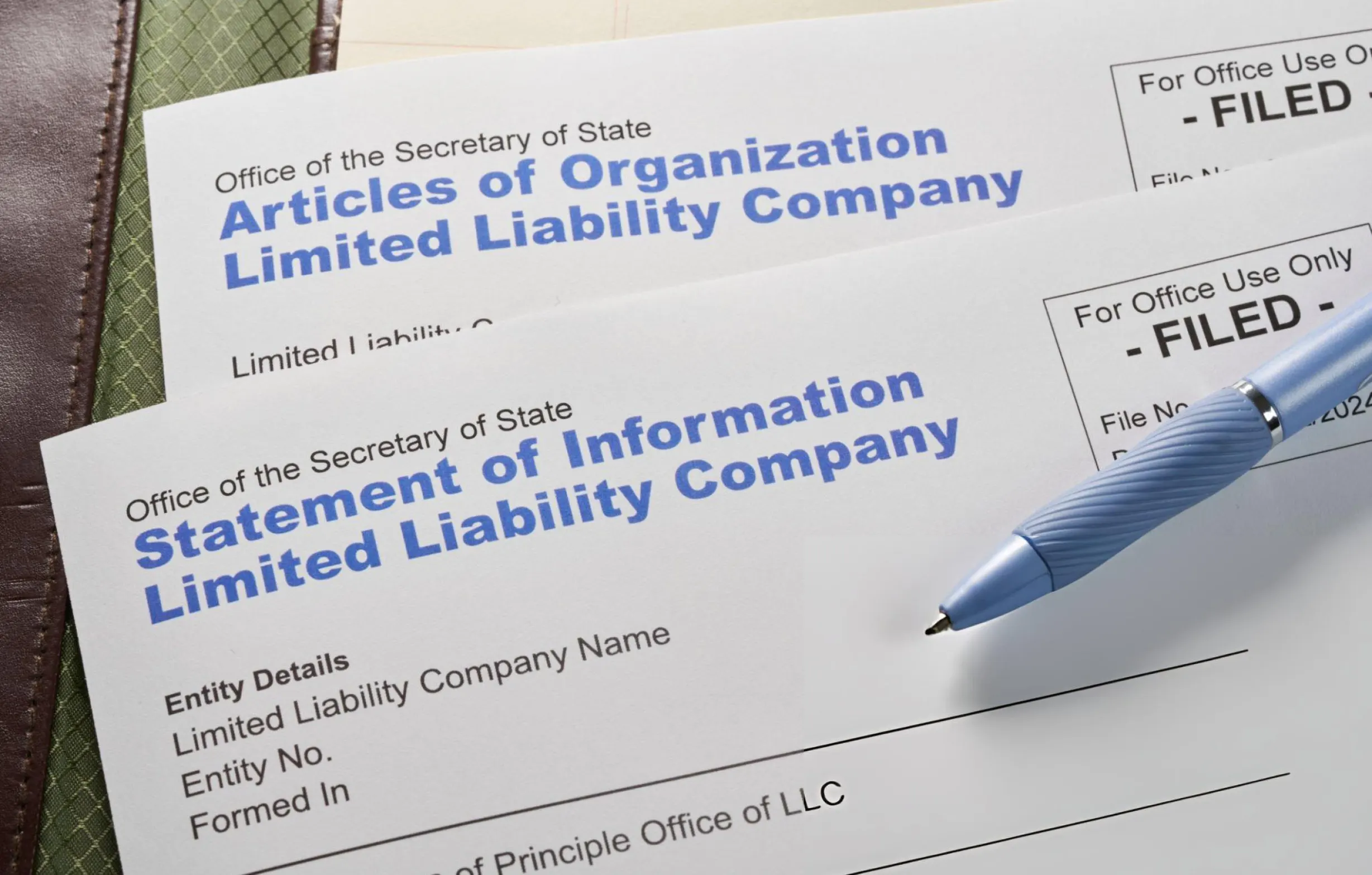
Find the Best State to Start an LLC – Complete Overview
Forming a Limited Liability Company (LLC) can be a pivotal step for any entrepreneur or small business owner. Many individuals recognize an LLC’s ability to protect personal assets, offer operational flexibility, and enhance credibility. Yet, one aspect that often sparks debate is determining the best state to start an llc for maximum benefit. Some believe that certain states automatically provide advantages, often due to lower taxes or robust privacy protections.
However, the decision ultimately depends on a business’s unique objectives, resources, and long-term vision.
This article takes a friendly, human-written, and third-person perspective to explore which best place for llc formation might suit different ventures. It conveys the importance of evaluating various considerations, highlights popular states frequently discussed among business owners, and walks through a general formation process. By examining these elements, potential founders can discover the best state to register llc and make an informed decision that benefits their specific circumstances and future goals.
Key Considerations When Choosing the Best State to Open an LLC
1. Home State vs. Out-of-State
One of the most important decisions is whether to form an LLC in the home state or to register elsewhere. Residents often assume that incorporating out of state is always better, typically pointing to business hubs such as Delaware, Nevada, or Wyoming. But an out-of-state LLC requires additional steps, such as registering as a “foreign LLC” in the home state, which can create extra fees and administrative responsibilities.
Forming the LLC in the home state can streamline the initial setup, as business owners may already be familiar with local regulations, tax structures, and filing processes. Additionally, if the primary business activities occur in the home state, forming there can help avoid the expense and complexity of managing multiple registrations and compliance requirements. In many cases, this makes the home state a compelling contender for the best state to start an llc or even the best state to open an llc.
2. Regulatory Requirements
Each state has specific rules regarding the formation of an LLC, from naming conventions to filing fees and annual reporting obligations. Some states enforce ongoing requirements, such as annual or biennial reports, which can vary in cost and complexity. For instance, certain states have straightforward online filing systems, while others require a more intricate paper-based process. Before deciding on the best place for llc formation, it is beneficial for aspiring business owners to gauge those filing and reporting nuances carefully.
3. Tax Implications
Taxes can significantly affect the bottom line for any company. Although an LLC usually offers pass-through taxation—meaning income passes through to individual tax returns—states still have unique ways of taxing businesses within their borders. For example, some states charge a franchise tax or impose additional fees for the privilege of operating. On the other hand, a few states offer tax incentives that attract e-commerce startups, tech ventures, or specific industries.
Evaluating how the state’s tax structure aligns with future earnings is critical, as it can notably influence profit margins. If a business’s revenue is expected to be modest in its early years, it might be wise to avoid states with high franchise taxes that could stunt growth. Careful consideration of tax implications can help narrow down the best state to register llc for a given entity’s long-term financial outlook.
4. Privacy Laws
Privacy is a shared concern among many entrepreneurs. In certain states, it is possible to maintain anonymity in official documentation, allowing owners or managers to keep personal information off public records. Nevada and Wyoming, for example, are often mentioned for their privacy provisions. Delaware also prides itself on having a robust system for business formations, although some basic details often remain part of the public record.
Despite the allure of privacy safeguards, there is still a trade-off. Owners must comply with each state’s legal requirements, such as having a registered agent with a physical address in the chosen state. Balancing the desire for privacy with realistic operational needs is a key factor in determining the best state to start an llc for a specific business model.
5. Legal and Administrative Complexity
Some states offer extremely straightforward processes involving minimal paperwork and user-friendly online systems. Others may impose lengthier, more complex requirements. This level of complexity can influence factors like legal costs, time investment, and the need to hire professionals, such as attorneys and accountants.
Business owners may want to consider their own comfort level with regulatory compliance, especially if they plan to handle the formation and reporting on their own. For those who prefer to manage everything in-house with minimal professional assistance, a state known for clarity and simplicity might indeed be the best state to open an llc for their particular situation.
6. Growth and Expansion Plans
An LLC’s state of formation can have significant implications for future growth. If owners plan to seek venture capital, do business nationally, or eventually convert the LLC to a corporation, they might find it beneficial to align with jurisdictions well known in these arenas. Delaware, for example, has a Court of Chancery with extensive corporate law precedents, appealing to investors who value legal predictability. However, not every business will require a venture capital infusion in the future, meaning the benefits of forming in Delaware might not justify the extra costs for smaller ventures.
Also Read: Understanding Forming an LLC for Free 2025 & How Inc Authority Can Help
What Are the Criteria for Choosing a State?
Beyond the key considerations listed above, there are additional criteria entrepreneurs often use to pinpoint the best place for llc formation. The following points expand on how cost, taxes, privacy, and convenience all play significant roles:
1. Formation and Maintenance Costs
Every state varies in its filing fees, annual report fees, and ongoing taxes. The ideal state often strikes a balance with affordable initial filing costs and moderate renewal or franchise taxes. Lower fees can be appealing, but choosing a state purely based on cost might ignore other important factors like regulatory requirements or legal frameworks.
2. Tax Implications
Most LLCs benefit from pass-through taxation at the federal level. However, each state handles business taxes differently. Some impose franchise taxes, while others might offer incentives for specific industries. Owners should look into franchise or privilege taxes, sales and use taxes, state income taxes, and possible exemptions to find the best place for llc that aligns with their financial outlook.
3. Privacy and Anonymity
Entrepreneurs who value confidentiality may consider states that allow minimal public disclosure of members and managers. For instance, certain jurisdictions keep owner information off public records, reducing risks of unsolicited contact or potential harassment. Although beneficial, these privacy measures should also be weighed against any extra compliance demands.
4. Legal and Administrative Complexity
Complex legal structures or filing processes can create administrative hurdles or additional costs in professional fees. States known for clear guidelines and straightforward online filing systems can make ongoing compliance more convenient, saving both time and money in the long run.
5. Protection and Legal Framework
Some states feature well-established business courts or robust statutes that ensure smoother dispute resolutions. For companies anticipating significant legal complexities—like those seeking external funding—an advanced legal framework can prove invaluable.
6. Future Expansion Plans
If an LLC plans on operating nationwide or converting to a corporation later, it may be advantageous to form under a state with a strong reputation in corporate governance. Well-known business-friendly states often attract investors, who trust the predictability and clarity of these legal systems.
7. Home State Convenience
For many entrepreneurs, the best state to start an llc can simply be the one where the business primarily operates. Forming at home typically reduces extra filing fees, eliminates the need for foreign LLC registration, and makes it easier to handle administrative tasks and local regulations.
Also Read: Same Day LLC Filing in Tennessee 2025 – Important Facts You Need to Know
Popular States for LLC Formation
1. Delaware
Delaware often earns its reputation as one of the most business-friendly states. Its Court of Chancery, a specialized court system, focuses on corporate law, which can lead to quicker resolutions and greater predictability in legal matters. Attorneys and other professionals in Delaware typically have a deep well of business law expertise.
Despite these advantages, forming an LLC in Delaware can become more expensive for companies that operate primarily outside the state. Additional fees may arise when registering as a foreign LLC in one’s home state. Entrepreneurs must weigh the cost-benefit of Delaware’s sophisticated infrastructure.
“If you’re looking for a streamlined LLC formation service, Consider This Service.”
2. Wyoming
Wyoming stands out for low filing fees, notably straightforward online formation processes, and strong privacy protections. Individuals can keep members and managers off public record, which is appealing for those seeking more anonymity. However, if the LLC mainly conducts activities outside Wyoming, foreign registration complexities need to be considered.
3. Nevada
Nevada is comparable to Wyoming when it comes to offering privacy benefits. The state’s additional confidentiality in public filings can be a draw for those who wish to protect personal details. On the flip side, business owners operating mainly elsewhere will face foreign LLC registration and compliance requirements across multiple jurisdictions.
4. Home State Emphasis
While Delaware, Nevada, and Wyoming garner much attention, an LLC formed in the business’s home state is often the most straightforward route. This keeps compliance simpler, eliminates duplicate fees, and ensures familiarity with local regulations—a logical choice for many small to mid-sized companies.
Step-by-Step Formation Overview
1. Choose a State
Selecting where to form an LLC is the first major step in determining the best state to register llc. By carefully examining fee structures, tax requirements, and privacy considerations, entrepreneurs can choose a location aligned with their priorities. It is also wise to plan for potential expansions before finalizing the decision on the best state to open an llc.
2. Name the LLC
Once the state is selected, the next crucial step is choosing a name for the LLC. The name must comply with the state’s LLC naming rules, usually requiring the words “Limited Liability Company” or “LLC/L.L.C.” Business owners often check online databases to ensure the desired name is available.
3. File Formation Documents
Most states require “Articles of Organization” (or a “Certificate of Formation”) to be filed. This document typically includes basic information about the LLC, such as the registered agent’s address, its purpose, and the members’ or managers’ names. Filing can often be completed online, although some jurisdictions still accept or mandate paper forms.
4. Registered Agent
A registered agent is a person or business entity that resides in the state and accepts official legal documents. The specific regulations and costs can vary, but every LLC must have one. Some entrepreneurs handle this role themselves, while others hire a professional service.
5. Operating Agreement
Although not always a legal requirement, an Operating Agreement is highly recommended. It clarifies ownership percentages, member duties, decision-making processes, and financial arrangements within the LLC. This helps prevent disputes and offers clarity to potential investors or lenders.
6. Obtain an EIN
The Employer Identification Number (EIN) from the Internal Revenue Service (IRS) is necessary for taxation and banking operations. Applying for it is free and typically done online. This step is essential for businesses planning to employ staff or open dedicated bank accounts.
7. Meet Ongoing Compliance
Maintaining good standing often involves filing annual or biennial reports, paying fees, and updating public records if there are changes in the LLC’s structure. Legally abiding by these obligations helps the business avoid fines or a potential loss in credibility.
“Ready to form your LLC? Check out our partner LLC Launch Pad for exclusive discounts on registration packages.”
Professional Advice and Final Thoughts
Advisors, such as attorneys or accountants, can offer guidance specific to each situation. Consulting a professional might be especially valuable when a business has complex goals, requires specific forms of funding, or expects significant changes in ownership over time. Professionals are typically well-versed in matters like tax strategies, liability protection, and multi-state compliance.
In the long run, there is no single universal best state to open an llc, despite recurring recommendations in entrepreneurial circles. Each company has unique needs: some value cost efficiency, while others prioritize advanced legal structures or robust privacy safeguards. It is crucial to look past myths and align the LLC’s formation state with practical realities.
For many small- and medium-sized businesses, forming and operating in the home state offers distinct advantages, such as reduced paperwork, simpler compliance, and fewer additional fees. Meanwhile, entrepreneurs seeking specialized benefits—like extended anonymity or a state seasoned in corporate law—may find Delaware, Nevada, or Wyoming more suitable.
Ultimately, exploring each best place for llc formation should lead to smoother operations and peace of mind, allowing owners to focus on growth, innovation, and community impact. By examining a state’s regulations, taxation system, reporting demands, and the broader criteria noted above, entrepreneurs will be well-equipped to establish an LLC aligned with both current needs and future aspirations.
Affiliate Disclosure: This article may contain affiliate links, which means the author could receive a commission at no extra cost to the reader if you click through and make a purchase. Balancing transparency while offering valuable recommendations is key to ethical affiliate marketing. Error or missing information? Please let us know









